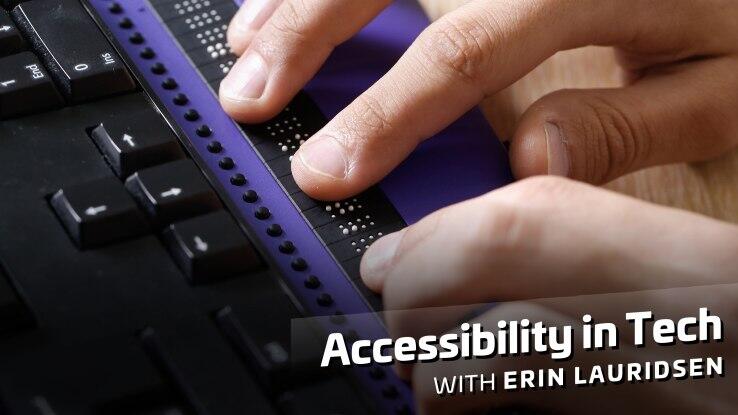Technology can be central to the lives of the 285 million people in the world who are blind or visually impaired, as long as they know how to use it. That’s where Erin Lauridsen, access technology director at LightHouse for the Blind and Visually Impaired, comes in.
In her role, Lauridsen helps ensure people who are blind and visually impaired “know how to access all of the technology that they need to live their lives,” Lauridsen told me on the latest episode of Bullish. That can be anything from computer literacy and smartphone use to being able to use assistive technologies like screen readers and magnification.
She also works with tech companies like Google, Uber, Lyft and Facebook around user testing to make sure “things that already exist and that are being created are as accessible as they can be to people who are blind and visually impaired,” Lauridsen said.
Among those who are legally blind in the U..S, there is a 70 percent unemployment rate, though. That stat has not been updated since the nineties, but Lauridsen said that it’s still high. It’s not clear how many people are blind or visually impaired in the tech industry (tech companies don’t typically report this data and it also brings up privacy concerns), but they seem to be few and far between.
One of the barriers to jobs for blind people is literacy, Lauriden said. Without access to brail and other accessible materials, the literacy gap can happen very early on in someone’s life.
“Once [blind] people have that education and move into the work world, a lot of it is awareness,” Lauridsen said. “If you’re the first person with a disability a hiring manager has ever met and they spend the interview wondering how on earth you got here today and how you tie your shoes, they’re probably not going to be focusing on your skills, so part of it is an awareness problem.”
The other part, Lauridsen said, is the accessibility of developer tools. Lauridsen has several blind friends who are amazing coders, she said, but there are certain jobs and roles they can’t take because the developer environments are not accessible to them.
Ultimately, Lauridsen hopes that tech companies will make accessibility more than “this little compliance check box at the end of the process,” Lauridsen said. She wants accessibility to “be integrated as a really key and useful part of development cycles of building things and making things because people with disabilities are hackers and innovators, and that’s what we do.”
Source: http://tcrn.ch/2v8f5Yl











